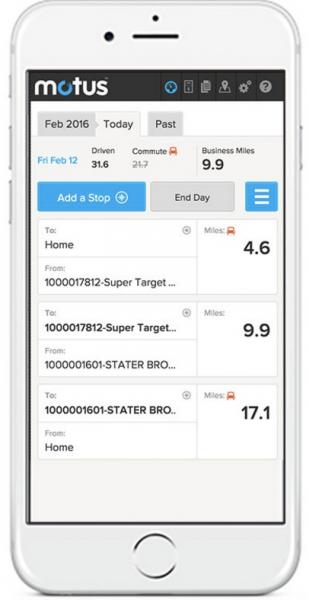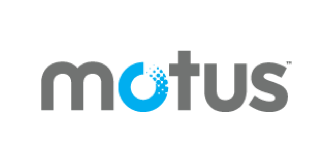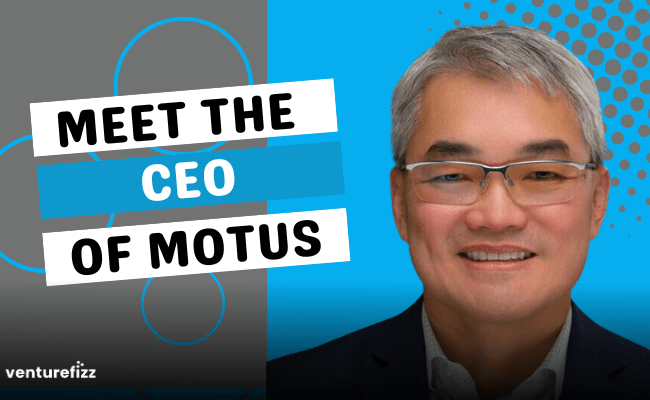In October 2004, Motus – then Corporate Reimbursement Services (CRS) – was founded to apply technology and automation to what was historically a manual approach to reimbursing employees for their business mileage.
Historically, companies with mobile workers have either provided employees with company-provided fleet vehicles or used “one-size-fits-all” reimbursement programs – such as a flat auto allowance or cents-per-mile reimbursement – to repay any business-related expenses for employees’ personally-owned vehicles.
The cost of these assets (including fuel prices, maintenance, insurance, and license and registration fees) tend to vary by where drivers operate their vehicles and the rate at which the drivers operate them - variables that other approaches didn’t account for. A flat auto allowance program, for example, reimburses employees the same amount, regardless of where they live and how many miles they drive for business.
CRS was launched with the goal of leveraging technology to provide a more modern approach to calculating vehicle operating costs for each individual mobile worker by considering these different factors – regardless of whether the vehicle was provided by the employer or owned by the employee.
While CRS was offering something valuable and defensible that was experiencing outstanding growth, it was time to take the company to the next level. At this point, current President and CEO Craig Powell – a software and Internet executive with experience building high growth companies – got involved.

Powell saw that CRS was winning major deals against its competitors. Intrigued, he took time before joining the company to familiarize himself with the industry, and truly understand the company’s potential to grow into a robust enterprise platform capable of meeting the diverse needs of the growing mobile workforce.
In 2013, Powell came on as President and COO, bringing experienced senior management and tech teams with him.
“The new team helped lead a complete transformation of the company,” Powell said. “We drove automation in areas that weren’t originally automated, drove a technical approach to everything we did, and heavily invested in a mobile enterprise platform – all while focusing on meeting our clients’ needs.”
They also rebranded the company as Motus, which is the Latin word for “motion”. As part of the company’s new direction, Powell became CEO in July 2014.
Mobile Workforce Solutions
Today, Motus offers a cloud-based mobile enterprise platform. The Motus platform primarily operates through a mobile app, which automates mileage tracking, calculates personalized reimbursements or personal use chargebacks (in the case of company-owned cars), submits reimbursement reports, and creates mileage logs that are IRS-compliant.
The company prides its platform on being both fair and accurate, as Motus tracks a driver’s miles and calculates reimbursement amounts by leveraging location data and numerous operating cost variables. By dynamically accounting for both the fixed (insurance, license and registration fees) and variable (fuel, maintenance) costs associated with driving for business, the company is able to reimburse mobile employees exactly what they deserve.
 Fair reimbursement also allows customers to recognize significant cost savings. Powell explains that on average, a company saves $2,500 to $3,500 per driver, per year with Motus, which allows them to “reinvest that money back into their drivers, or their customers, or their solutions.” For example, Coca-Cola Bottling Company Consolidated saved 26% on reimbursement expenses in their first year on the Motus platform.
Fair reimbursement also allows customers to recognize significant cost savings. Powell explains that on average, a company saves $2,500 to $3,500 per driver, per year with Motus, which allows them to “reinvest that money back into their drivers, or their customers, or their solutions.” For example, Coca-Cola Bottling Company Consolidated saved 26% on reimbursement expenses in their first year on the Motus platform.
Each December, the IRS publishes its “Safe Harbor Rate,” (this year, it’s 53.5 cents per business mile driven). While many companies use this as an easy reimbursement rate for all of its employees, Powell calls that move a “flawed reimbursement decision” when it comes to routine business drivers.
This is because the “Safe Harbor Rate” is a fixed nationwide figure that reflects how much it costs to operate a vehicle, on average, in the previous year across all fifty states. It treats all employees the same, even though the cost of operating a vehicle can be very different in two different states or municipalities. If you’re a company using this rate, Powell says, “You’re more than likely overpaying in many states and underpaying in others.”
Core Verticals
In addition to the aforementioned Coca-Cola Bottling Company, Powell named a number of core industry verticals that tend to have large mobile worker populations, such as Food & Beverage and Healthcare (like pharmaceutical sales reps and traveling nurses).
“Within these verticals, our customers really run the gamut,” Powell explained. “Our smallest customer has five drivers, and our largest has well over 20,000. The companies we serve range from folks you haven’t heard of to Coca-Cola Bottling Company and Kellogg’s. We also work with some great beer companies like Yuengling, and all of the major pizza brands.”
Looking Forward
The company currently has 110 employees, and continues to focus on growth. From a revenue perspective, Powell says that Motus is completing what the company refers to as “Phase 2,” ($10-25M), and is transitioning to get through “Phase 3” ($25-100M) in the next 2-3 years.
These numbers are especially impressive because Motus has been bootstrapped since its founding.
“We’re owned by our founder and the management team, which is unique relative to a business at our scale, and this affords the opportunity for members of our team to drive input into the strategy, as well as the global thinking of the business.”

The CEO also points to another factor that makes Motus special: its mobile SaaS play.
“One of the cool things about Motus in the Boston tech scene, and one of the things I love about being here, is that we’re one of the few, true, mobile SaaS enterprise plays in the Boston market. There aren’t a lot of us. The rate of disruption that’s heading into the automotive industry is exciting, and it’s at the intersection of a more mobile and fluid workforce, at a point when “in-car time” is becoming “productivity” time.”
Just before we signed off, Powell slipped in a post-interview line that, in my opinion, really encapsulated the energy of both our interview and Motus as a whole.
“You know, as one of our team members said to me after our all-company meeting, if someone were to poke their head in and listen to us talk about the things we talk about, at the level of passion we talk about them, and then you found out we were in the fleet and vehicle management industry, I think they’d be floored.”
Alexander Culafi is a Staff Writer for VentureFizz. You can follow him on Twitter @culafia.
Images provided by Motus.






